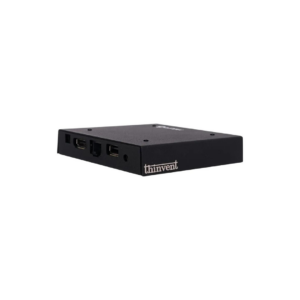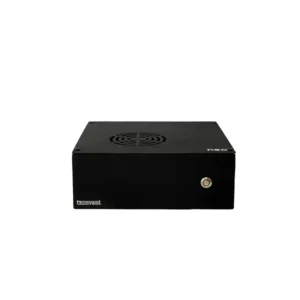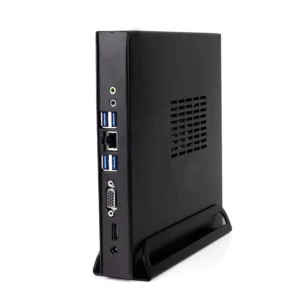Thin Client vs. Mini PC: How to Choose the Right Computing Solution for Your Needs ?
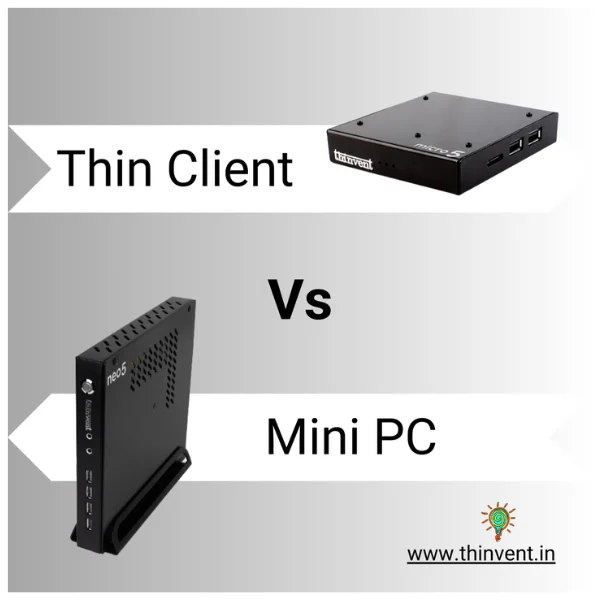
In the rapidly evolving world of technology, the need for efficient and cost-effective computing solutions has become increasingly important. Two popular options that have gained significant traction in recent years are thin clients and mini PCs. While both options offer their unique advantages, understanding their differences and applications is crucial to make an informed decision. In this blog post, we will explore the characteristics, benefits, and ideal use cases of thin clients and mini PCs, helping you choose the right computing solution for your specific needs.
Thin Clients
A thin client is a lightweight computing device designed to connect to a remote server or cloud infrastructure for most of its processing needs. Unlike traditional desktop PCs, thin clients typically have minimal local processing power, storage, and software capabilities. Instead, they rely on the centralised server to handle complex tasks and deliver the necessary resources to the client over a network connection.
Benefits of Thin Clients:
1.Cost-efficiency: Thin clients are generally less expensive to purchase and maintain than traditional PCs. Their minimal hardware requirements result in lower upfront costs, reduced power consumption, and easier management, making them an attractive choice for businesses looking to optimise their IT budgets.
2.Enhanced security: Since the majority of the processing occurs on the server, thin clients are less vulnerable to security threats. Data remains centralised, reducing the risk of data loss or theft from individual devices. Additionally, software updates and patches can be applied centrally, ensuring consistent security measures across the network.

3.Simplified management: With thin clients, IT administrators can streamline the deployment, maintenance, and software updates from a central server. This centralized management approach allows for easier scalability and reduces the time and effort required to manage individual devices.
Ideal Use Cases for Thin Clients: Thin clients are well-suited for specific scenarios, including:
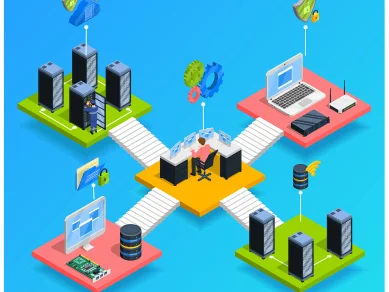
1.Virtual desktop infrastructure (VDI): Thin clients excel in VDI environments, where a large number of users need to access a shared set of applications and resources. By offloading most processing tasks to the server, thin clients enable seamless access to virtual desktops, improving productivity and resource allocation.
2.Task-oriented workplaces: Industries with task-oriented roles, such as call centres, retail operations, or manufacturing facilities, can benefit from thin clients. These devices provide a standardised interface for employees, ensuring uniformity and reducing the risk of data breaches or unauthorised software installations.
3.Remote work environments: With the rise of remote work, thin clients offer a convenient solution. Employees can connect to the centralised server infrastructure from their own devices, ensuring data security and consistent software access regardless of their physical location.
Mini PCs
In contrast to thin clients, mini PCs are fully functioning computers packed into compact form factors. They possess their own processing power, storage, and operating systems, providing a more independent computing experience. Mini PCs often resemble small desktop towers or compact boxes, making them suitable for various computing needs.
Benefits of Mini PCs:
1.Local processing power: Mini PCs boast a higher level of processing power than thin clients, making them suitable for resource-intensive tasks. They can handle applications that require substantial computing resources, such as graphic design, video editing, or gaming.
2.Flexibility and versatility: Mini PCs offer greater flexibility in terms of software installation and customization. Users have the freedom to choose their preferred operating systems, applications, and configurations according to their specific requirements.
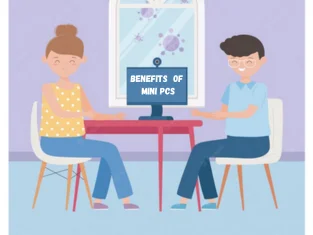
3.Portability: While not as compact as mobile devices, mini PCs are still highly portable compared to traditional desktop computers. They are ideal for individuals who need a portable computing solution without compromising on performance.
Ideal Use Cases for Mini PCs: Mini PCs are well-suited for various scenarios, including:

1.Home entertainment centres: Mini PCs can serve as media centres, streaming devices, or gaming consoles. Their compact size allows them to seamlessly integrate into home theatre setups, providing high-quality multimedia experiences.
2.Small office/home office (SOHO) setups: Mini PCs are suitable for individuals or small businesses requiring a reliable yet space-efficient computing solution. They can handle common office tasks, multimedia needs, and even light-to-moderate creative work.
3.Digital signage and kiosks: The small form factor and versatility of mini PCs make them an excellent choice for digital signage displays or interactive kiosks. These devices can deliver engaging content and provide interactive experiences while occupying minimal space.
When deciding between thin clients and mini PCs, it’s essential to consider your specific computing requirements. Thin clients excel in centralised, task-oriented environments, where cost-efficiency, security, and simplified management are paramount. On the other hand, mini PCs provide greater processing power, flexibility, and portability, making them ideal for more independent and resource-intensive tasks. By understanding the unique benefits and ideal use cases of each option, you can choose the right computing solution that aligns with your needs and maximises efficiency in your personal or professional environment.

